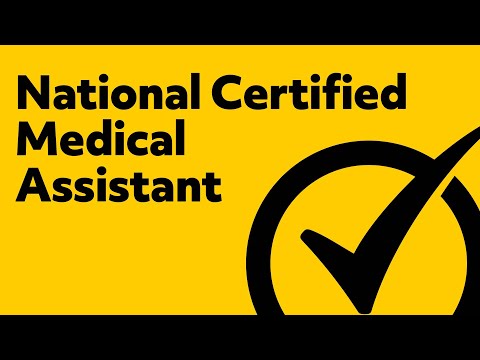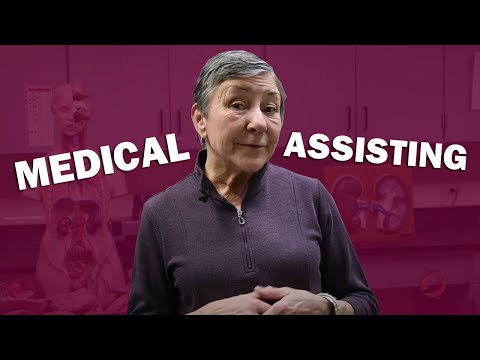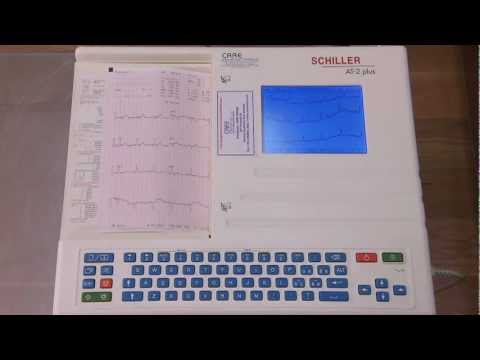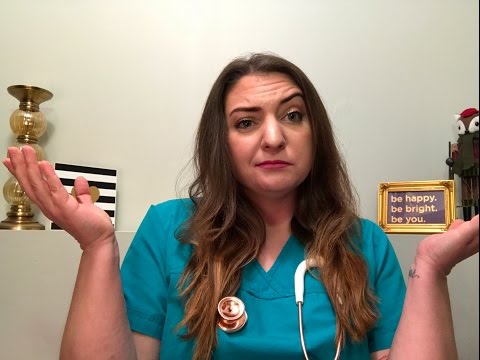Certification and Licensure for Medical Assistants
Contents
- What is certification and licensure for medical assistants?
- Why is certification and licensure important for medical assistants?
- What are the different types of certification and licensure for medical assistants?
- How can medical assistants become certified and licensed?
- What are the benefits of certification and licensure for medical assistants?
- What are the requirements for certification and licensure for medical assistants?
- What are the costs associated with certification and licensure for medical assistants?
- How often do medical assistants need to renew their certification and licensure?
- What are the consequences of not being certified or licensed as a medical assistant?
- Where can medical assistants go for more information on certification and licensure?
Find out what you need in order to be a certified or licensed medical assistant We’ve got all the info you need to get started.
Checkout this video:
What is certification and licensure for medical assistants?
Medical assistants are unlicensed, multi-skilled health care professionals who perform administrative and clinical duties under the supervision of a licensed physician or other health care provider. Certification and licensure for Medical assistants is not required in all states, but some states have certification and/or licensure requirements. In states that do not have certification or licensure requirements, Medical Assistants may still choose to become certified through voluntary certification programs such as those offered by the American Association of Medical Assistants (AAMA) or the National Healthcare Association (NHA).
Certification means that a medical assistant has met certain educational and training requirements and has passed an exam. Licensure generally requires passing an exam, but may also require completion of an approved education program. Once certified and/or licensed, medical assistants must meet continuing education requirements to maintain their certification and/or licensure.
Why is certification and licensure important for medical assistants?
Certification and licensure for medical assistants are important because they ensure that medical assistants have the knowledge and skills necessary to provide safe and effective patient care. Certification also demonstrates to employers that medical assistants are competent in their field.
In order to be certified, medical assistants must pass an exam that tests their knowledge of medical assisting. There are several different organizations that offer certification exams, but the most popular one is the Certified medical assistant (CMA) exam offered by the American Association of Medical Assistants (AAMA). To be licensed, medical assistants must meet the requirements of their state’s licensing board.
While certification and licensure are not required in all states, they may be required in some states for certain types of jobs, such as working in a hospital or surgery center. In addition, many employers prefer to hire certified and licensed medical assistants.
What are the different types of certification and licensure for medical assistants?
There are several different types of certification and licensure for medical assistants. The most common type is certification through the American Association of Medical Assistants (AAMA). To be eligible for this type of certification, medical assistants must have completed an accredited medical assistant program and passed the AAMA Certification Exam. Other types of certification include the Certified Clinical Medical Assistant (CCMA) credential, which is offered by the National Healthcare Association, and the Registered Medical Assistant (RMA) credential, which is offered by the American Medical Technologists. Some states also require medical assistants to be licensed, although requirements vary from state to state.
How can medical assistants become certified and licensed?
There are several ways medical assistants can become certified and licensed. One way is to attend an accredited medical assistant program. Once you have completed the program, you will be eligible to take the Certified Medical Assistant (CMA) exam administered by the American Association of Medical Assistants (AAMA). After passing the CMA exam, you will be a certified medical assistant and will be able to use the title “CMA” after your name.
In some states, medical assistants may also become licensed by passing a state-specific exam. A list of state licensing boards can be found on the AAMA website. After passing the state exam, you will be a licensed medical assistant and will be able to use the title “LMA” after your name.
Not all states require medical assistants to be licensed, but many employers prefer to hire those who are certified or licensed. Becoming certified and/or licensed shows that you have completed an accredited program and have met certain standards.
What are the benefits of certification and licensure for medical assistants?
There are many benefits to certification and licensure for medical assistants. Certification demonstrates that a medical assistant has the knowledge and skills necessary to perform their job duties effectively. Licensure ensures that medical assistants meet the minimum standards for safety and quality in their practice.
Certification and licensure also provide medical assistants with opportunities to advance their careers and earn higher salaries. Certification can open doors to job promotions and higher-paying positions, while licensure can help medical assistantsqualify for positions in other healthcare settings.
In addition, certification and licensure can give medical assistants greater job security. Certified and licensed medical assistants are more likely to be hired and retain their jobs than those without certification or licensure.
What are the requirements for certification and licensure for medical assistants?
Medical assistants perform both clinical and administrative tasks in healthcare facilities. Although certification is not required in all states, most employers prefer to hire certified medical assistants. In order to become certified, medical assistants must pass a exam administered by either the American Association of Medical Assistants (AAMA) or the National Healthcare Association (NHA).
After passing the certification exam, medical assistants are eligible for state licensure, if required. Each state has its own licensure requirements, but most states require medical assistants to complete an accredited medical assistant program and pass a competency exam.
What are the costs associated with certification and licensure for medical assistants?
The cost of medical assistant certification and licensure varies depending on the organization through which you obtain certification or licensure. Generally, certification from a professional organization costs more than licensure from a state regulatory body. The cost also varies depending on whether you are already working as a medical assistant or if you are just starting out in your career. Generally, the costs associated with becoming certified or licensed as a medical assistant include the following:
-An application fee
-A fee for taking the examination
-A annual membership fee (for some organizations)
-Continuing education requirements (for some organizations)
The cost of certification or licensure for medical assistants is generally around $200-$300. However, some organizations may offer discounts for members, so it is always best to check with the organization directly to find out the most accurate cost.
How often do medical assistants need to renew their certification and licensure?
The answer to this question may depend on a medical assistant’s state of residence and the type of certification or licensure they hold. However, most medical assistants will need to renew their certification or licensure every few years.
Some certifications, such as the Certified Medical Assistant (CMA) credential from the American Association of Medical Assistants (AAMA), are only valid for five years. After that, medical assistants must retake the exam to maintain their CMA credential in good standing.
Similarly, licensure periods may vary from state to state. For example, the National Board of Certification for Medical Assistants (NBCMA) offers a certified medical assistant (NCMA) credential that is valid for 60 months, or five years.
However, in Oregon, medical assistants must renew their license every year on September 30th. The renewal fee is $60, and medical assistants must complete at least 45 contact hours of continuing education (CE) during the year to qualify for renewal.
Some other states have different CE requirements for license renewal. For example, in Florida, medical assistants must complete a minimum of 14 hours of CE per renewal period. But unlike Oregon, Florida allows medical assistants to renew their license every two years instead of every year.
Overall, most certification and licensure bodies require that medical assistants participate in some form of continuing education to keep their credentials current. By staying up-to-date on the latest developments in the field, medical assistants can ensure that they are providing the best possible care to their patients.
What are the consequences of not being certified or licensed as a medical assistant?
Working as a medical assistant without the proper certification or licensure can have serious consequences. Depending on the state in which you work, you may be subject to fines or other penalties. In some cases, you may even be barred from working in the medical field altogether.
If you are caught working as a medical assistant without the proper certification or licensure, you may face the following penalties:
-Fines: You may be fined for working as a medical assistant without the proper certification or licensure. The amount of the fine will vary depending on the state in which you work.
-Loss of job: You may be fired from your job if you are working as a medical assistant without the proper certification or licensure.
-Prohibition from working in the medical field: In some states, you may be prohibited from working in the medical field altogether if you are caught working as a medical assistant without the proper certification or licensure.
The consequences of not being certified or licensed as a medical assistant can be serious. If you are caught working as a medical assistant without the proper certification or licensure, you may face fines, loss of job, or prohibition from working in the medical field altogether.
Where can medical assistants go for more information on certification and licensure?
Medical assistants can find more information on certification and licensure from the National Healthcare Association or from the American Association of Medical Assistants.







